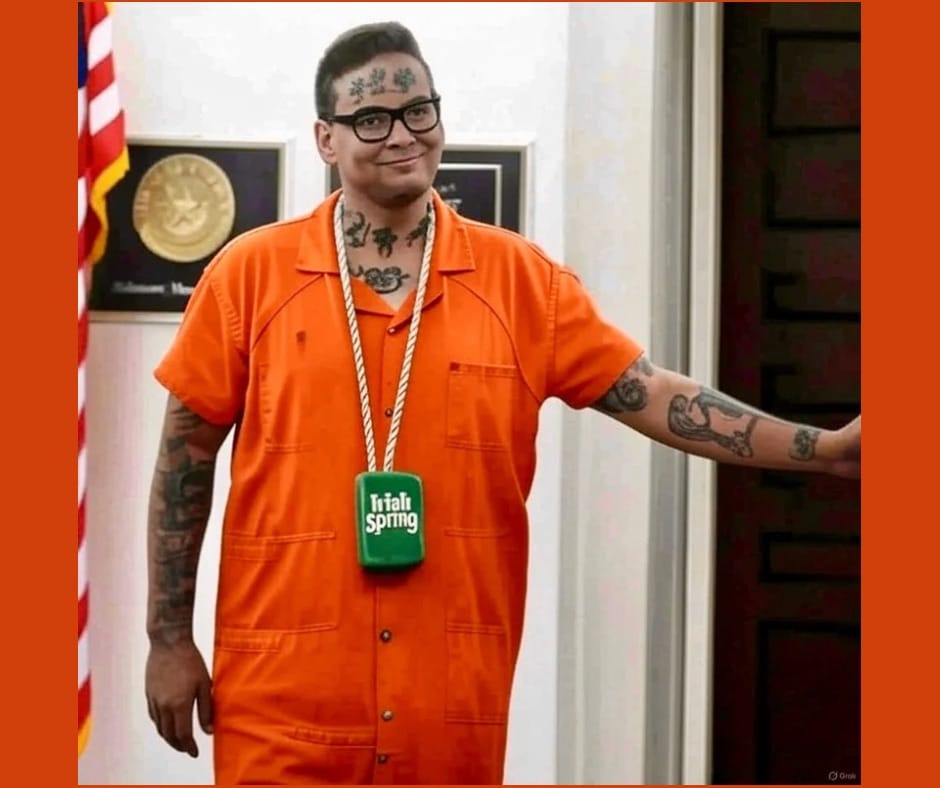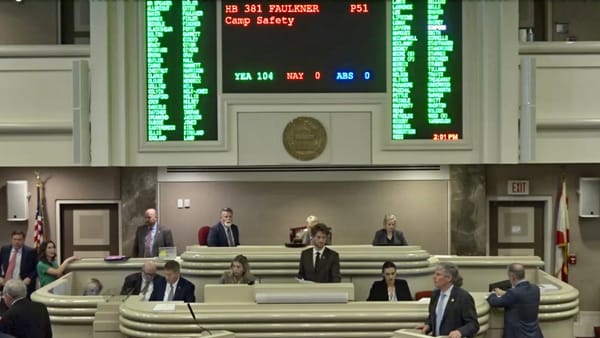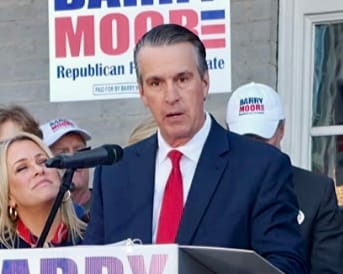Trump Commutes George Santos’ Sentence
Critics point to a House full of double standards

President Donald Trump on Friday commuted the seven-plus year federal sentence of former New York Representative George Santos, ordering his immediate release. Trump framed the move as mercy for a man who, he said, had been “horribly mistreated” in prison and who had been given a punishment out of proportion with what others in Washington get away with.
In a post on Truth Social, Trump said:
“George Santos was somewhat of a “rogue,” but there are many rogues throughout our Country that aren’t forced to serve seven years in prison. I started to think about George when the subject of Democrat Senator Richard “Da Nang Dick” Blumenthal came up again. As everyone remembers, “Da Nang” stated for almost twenty years that he was a proud Vietnam Veteran, having endured the worst of the War, watching the Wounded and Dead as he raced up the hills and down the valleys, blood streaming from his face. He was “a Great Hero,” he would leak to any and all who would listen — And then it happened! He was a COMPLETE AND TOTAL FRAUD. He never went to Vietnam, he never saw Vietnam, he never experienced the Battles there, or anywhere else. His War Hero status, and even minimal service in our Military, was totally and completely MADE UP. This is far worse than what George Santos did, and at least Santos had the Courage, Conviction, and Intelligence to ALWAYS VOTE REPUBLICAN! George has been in solitary confinement for long stretches of time and, by all accounts, has been horribly mistreated. Therefore, I just signed a Commutation, releasing George Santos from prison, IMMEDIATELY. Good luck George, have a great life!”
Santos’s case was ugly and theatrical: fabrications about his background, falsified campaign finance reports and an eventual guilty plea to wire fraud and aggravated identity theft. He was expelled from the House—a rare and brutal rebuke—and was serving an 87-month sentence before the commutation. Yet the optics of his punishment have opened a wider wound: many members of Congress who have engaged in serious ethical or financial misconduct remain in office with little more than a rebuke or a headline.
Santos’ pardon aside, some of the men and women who still sit in the People’s House have done damage to public trust that is equal to—and in some cases arguably worse than—what Santos was punished for. Consider just a few examples:
Rep. Byron Donalds (R-Fla.) was the subject of a Campaign Legal Center complaint after failing to disclose as much as $1.6 million in stock trades, an apparent violation of the STOCK Act’s reporting rules. That’s not a paperwork hiccup. It’s a huge blind spot in the law meant to stop members of Congress from trading on inside knowledge—and yet Donalds still serves without criminal charges or expulsion, and is preparing to run for Governor of Florida.
Rep. Val Hoyle (D-Ore.), who publicly pushed for restrictions on members’ stock trading, was weeks or months late in reporting 217 trades made by her husband—transactions worth anywhere from the low six figures to several million dollars. The hypocrisy here is plain: preaching reform while missing hundreds of mandated disclosures. And yet, no prison, no congressional ouster.
Rep. Tom Suozzi (D-N.Y.) has been hit with an ethics complaint after failing to timely report multiple Treasury-bill purchases—tens of thousands of dollars in purchases that only surfaced in his annual disclosure rather than in the prompt filings required by law. Suozzi has a pattern of late filings stretching back years; again, the remedy has been complaint and commentary, not removal from office.
And Rep. Mike Kelly (R-Pa.) was formally found to have violated the House Code of Official Conduct after his wife bought stock in a steel company that stood to benefit from policy he supported, later selling for a roughly $64,476 profit. The Ethics Committee’s report called out a failure of candor and recommended divestment before further related official action—severe rebuke on paper, but no criminal case and no expulsion.
Those are not fringe scandals. They’re recurring, well-documented breaches of the rules meant to keep public office from becoming a private hedge fund. In many cases the transgressions are omissions or timing tricks—late filings, incomplete disclosures—rather than the brazen fabrications that made Santos a national joke. But in practice the damage is similar: the public loses faith, and trust in institutions erodes.
Finally, consider the poster child for the Congressional turpitude: Nancy Pelosi. Whether you call it prescience or plain good fortune, the Pelosi household’s trades have produced returns that would make hedge funds jealous—and have spawned “Pelosi trackers” that let retail investors mirror those moves. Critics ask whether a Speaker with access to market-moving information should be associated with a portfolio that vastly outperforms the market. Yet, the answer from leadership has been the same: disclosures are enough. This is hardly the full accounting and transparency the public deserves—although it has led to the eponymous Pelosi Act, which is intended to curb such behaviors.
Regarding pardons and clemencies, Presidents have wide latitude. Yes, Trump has used clemency aggressively during his second term—although his numbers are still far below those of his predecessor. And yes, some critics will lob cheap shots about procedure—even the much-bandied “autopen” jabs about President Biden’s mass pardons. But whatever one thinks of the mechanics, the true question is fairness. If low-level staffers or lawmakers with tidy portfolios and late filings are left untouched, and Santos—a loud, messy embarrassment to the establishment—is singled out for a prison term normally reserved for serious, violent, or repeat offenders, that strongly suggests selective enforcement. The public can not help but notice who gets the hammer and who gets the slap on the wrist.
That’s why conservatives who supported Santos’s commutation, such as Georgia’s Majorie Taylor Greene, see it as less about excusing wrongdoing and more about correcting a political imbalance. MTG, who had been lobbying for some time for Santos’ pardon, took to social media to thank the President, saying about Santos that. “He was unfairly treated and put in solitary confinement, which is torture!!”
Santos did wrong; he admitted it. But so did others—sometimes in ways that cost taxpayers, bent markets, or put private gain above public duty—and they kept their seats and their freedom. If the law means anything, it should mean equal treatment. If the system is rigged so that bearers of scandal who embarrass the establishment get the hard treatment while those who move money quietly skate by, voters will keep losing faith in both parties.
For now, Santos walks free. He remains a convicted felon on paper, but the commutation rewrites the practical end of his punishment. The deeper question the commutation spotlights is the one voters should be asking their members of Congress: why are some offenses punished to the fullest while others are shrugged off? Until Congress cleans house—not with partisan vendettas, but with clear, enforced rules—the stench of double standards will keep rising from Capitol Hill.




